
Find Help
More Items From Ergsy search
-

How is Inheritance Tax (IHT) dealt with after death?
Relevance: 100%
-

What is inheritance tax in the UK?
Relevance: 94%
-
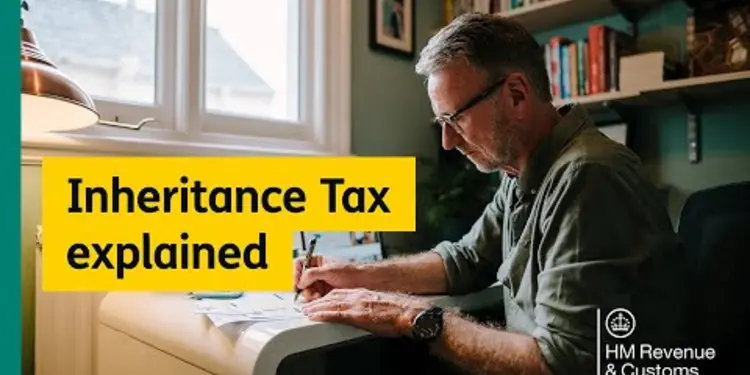
What is Inheritance Tax?
Relevance: 90%
-

How is inheritance tax calculated?
Relevance: 90%
-
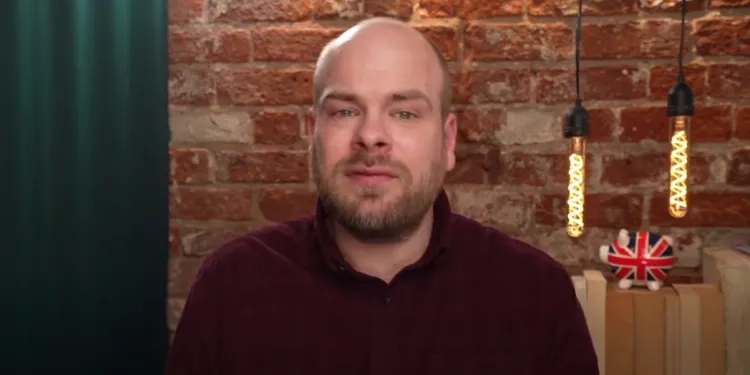
What Happens to Tax Debt After Death? (UK Laws)
Relevance: 89%
-

What assets are subject to inheritance tax?
Relevance: 89%
-

What is inheritance tax?
Relevance: 89%
-
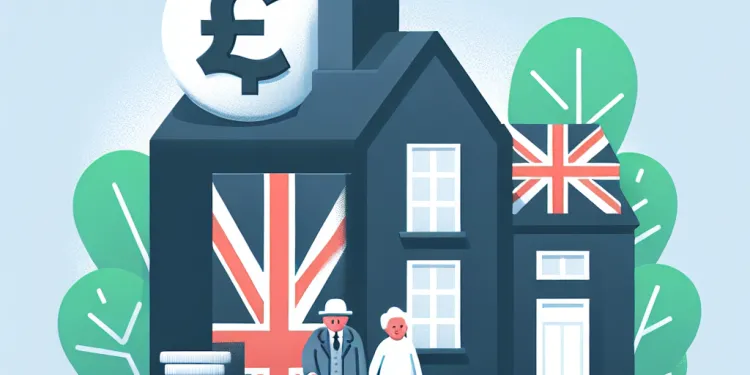
What is inheritance tax in the UK?
Relevance: 88%
-

Who pays the inheritance tax?
Relevance: 88%
-

Are there deductions available for inheritance tax?
Relevance: 88%
-

What is the seven-year rule relating to inheritance tax?
Relevance: 87%
-
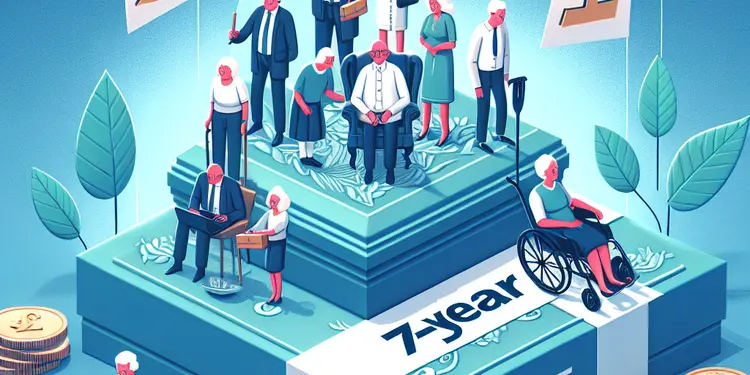
What is the '7-year rule' in Inheritance Tax?
Relevance: 85%
-

Does the value of gifts affect Inheritance Tax?
Relevance: 85%
-

What is the process for paying inheritance tax?
Relevance: 85%
-

What is Inheritance Tax?
Relevance: 83%
-

Can Inheritance Tax be claimed back?
Relevance: 83%
-

Are there tax-free thresholds for inheritance tax?
Relevance: 83%
-

Do I pay Inheritance Tax on a property I inherit?
Relevance: 82%
-

When is inheritance tax due?
Relevance: 81%
-

How is the Inheritance Tax bill calculated?
Relevance: 81%
-

Who is responsible for paying Inheritance Tax?
Relevance: 80%
-

When do I need to pay Inheritance Tax?
Relevance: 79%
-

Is there a difference between inheritance tax and estate tax?
Relevance: 79%
-

What happens if inheritance tax is not paid?
Relevance: 77%
-
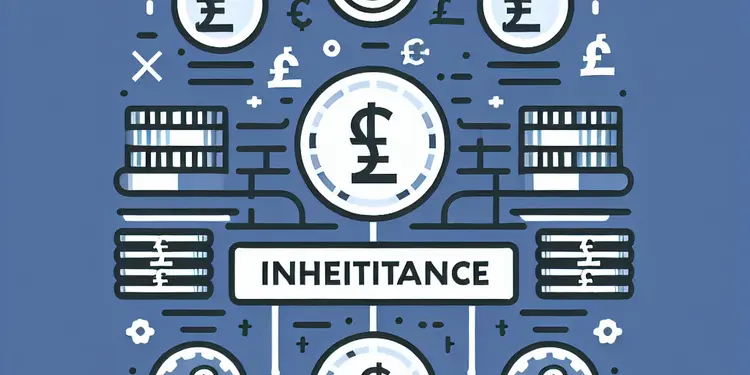
Can Inheritance Tax be paid in installments?
Relevance: 77%
-

How do I value the estate for Inheritance Tax purposes?
Relevance: 76%
-
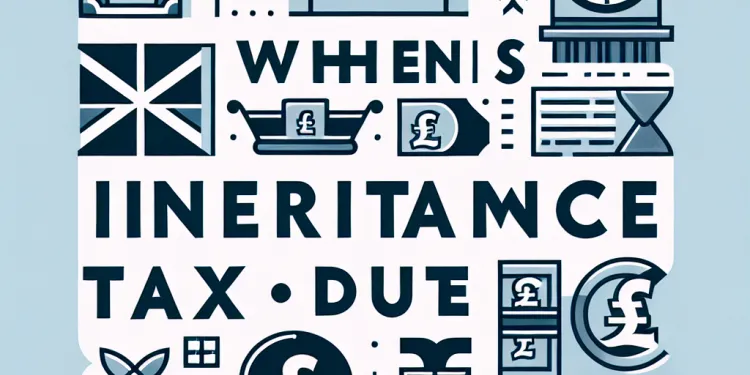
When is inheritance tax due to be paid?
Relevance: 76%
-
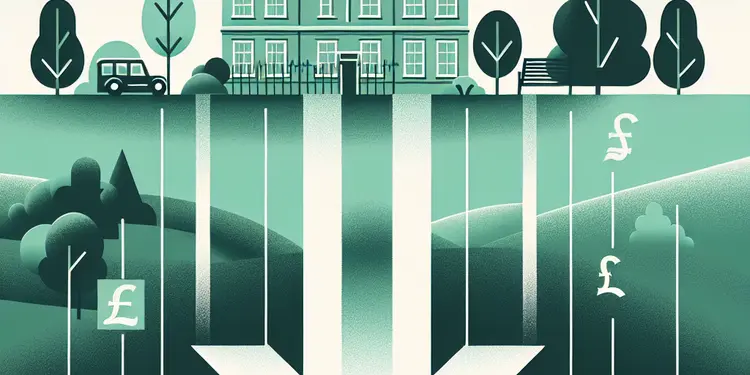
How can one reduce the inheritance tax burden?
Relevance: 75%
-

Can inheritance tax be deferred?
Relevance: 75%
-

Can an inheritance tax bill be challenged or appealed?
Relevance: 75%
-

How can I plan efficiently to mitigate inheritance tax?
Relevance: 75%
-

Is there any inheritance tax exemption for spouses or civil partners?
Relevance: 75%
-

Are there professional advisors for inheritance tax planning?
Relevance: 75%
-

Does owning property abroad affect UK inheritance tax?
Relevance: 75%
-

Are there any exemptions from inheritance tax?
Relevance: 74%
-
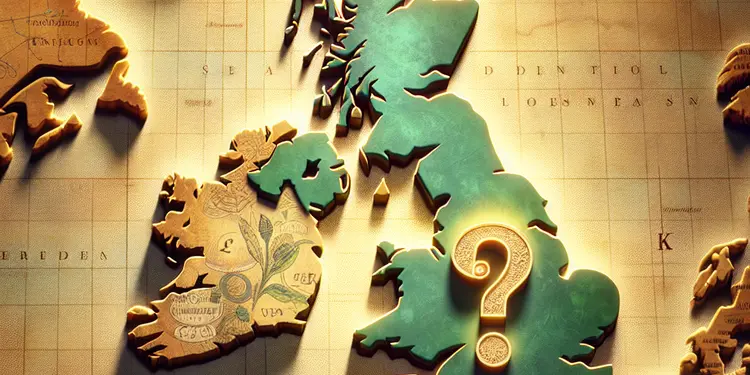
Which countries impose inheritance tax?
Relevance: 74%
-

What is the nil rate band in Inheritance Tax?
Relevance: 74%
-

Do I need to inform HMRC about the death?
Relevance: 74%
-
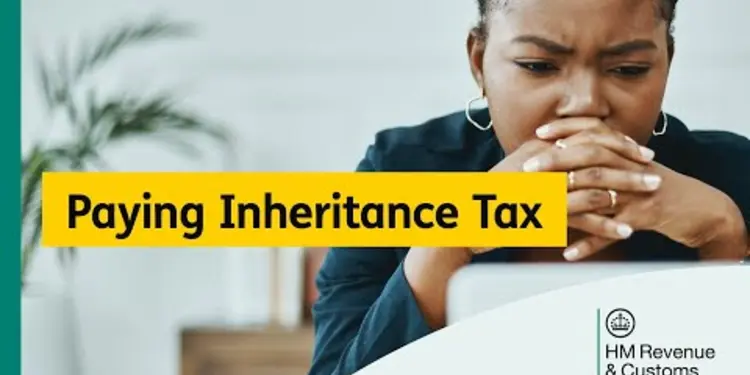
How and when do I pay Inheritance Tax when someone has died?
Relevance: 74%
-

Can gifting reduce future inheritance tax liabilities?
Relevance: 73%
Understanding Inheritance Tax (IHT) in the UK
Inheritance Tax (IHT) in the UK is a tax on the estate of someone who has died. This includes their property, money, and possessions. It is important to understand how IHT is handled after a person's death to ensure that the estate is correctly administered and the tax liabilities are settled.
Thresholds and Rates
As of the latest regulations, IHT is only charged on estates valued above the current threshold of £325,000, known as the nil-rate band. The rate of IHT is 40% on anything above this threshold. However, if more than 10% of the estate is left to charity, the IHT rate can be reduced to 36%.
Exemptions and Reliefs
Certain gifts and transfers are exempt from IHT. For example, gifts between spouses or civil partners are usually exempt. There is also an additional threshold called the residence nil-rate band, which applies to properties left to direct descendants. Other reliefs such as Business Relief or Agricultural Relief may reduce the tax liability on certain qualifying assets.
The Role of Executors
After a person's death, the executors of the will are responsible for managing the estate. This includes paying any IHT that is due. The executors must assess the total value of the estate and submit the necessary forms to HM Revenue and Customs (HMRC). They may need to pay some or all of the IHT before they can receive a grant of probate, which is the official confirmation of their authority to deal with the estate.
Paying Inheritance Tax
IHT is usually due within six months from the date of death. If it is not paid by then, HMRC may charge interest on the outstanding amount. Executors can choose to pay IHT from the estate’s funds or arrange to pay it in installments over a maximum of ten years for certain assets, like houses, if they cannot be sold immediately to raise funds.
Reporting to HMRC
Executors must complete and submit an IHT return, detailing the estate's value and the amount of tax due. This includes filling out IHT400 and other related forms to account for any gifts made by the deceased in the last seven years of their life, as such gifts may still incur IHT.
Finalizing the Estate
Once the IHT is paid and the grant of probate is obtained, the executors can begin distributing the estate according to the will, or under the rules of intestacy if there is no will. Any remaining IHT dispute with HMRC must be resolved before the estate is completely finalized. Executors should retain records of their dealings with HMRC in case of future queries or audits.
Understanding Inheritance Tax (IHT) in the UK
Inheritance Tax, or IHT, is a tax in the UK on a person’s property, money, and possessions after they die. It is important to know how IHT works so the person’s belongings are shared out properly, and any tax owed is paid.
Thresholds and Rates
Right now, IHT is only paid on estates worth more than £325,000. This amount is called the nil-rate band. The tax rate above this amount is 40%. But if the person gives over 10% of their estate to a charity, the tax rate can go down to 36%.
Exemptions and Reliefs
Some gifts and transfers do not have to pay IHT. For example, gifts between married couples or civil partners are usually exempt. There is another allowance for homes left to children or grandchildren, called the residence nil-rate band. Certain types of assets, like some businesses or farms, might also get tax relief, which means paying less tax.
The Role of Executors
When someone dies, executors look after their estate. This means they have to make sure any IHT is paid. Executors need to work out how much the estate is worth and fill in forms for HM Revenue and Customs (HMRC). Sometimes, they need to pay some of the IHT before they can get a special document called a grant of probate. This document lets them manage the estate.
Paying Inheritance Tax
IHT should be paid within six months after the person’s death. If not, HMRC might add extra charges on the amount owed. Executors can pay the IHT from the estate’s money. If they can't sell property quickly, like a house, they can choose to pay over up to ten years instead.
Reporting to HMRC
Executors must fill out an IHT return, saying how much the estate is worth and how much tax is due. This includes forms like IHT400 and others. They must also report any gifts the person gave in the last seven years of their life, because these might still need to pay IHT.
Finalizing the Estate
Once IHT is paid and the grant of probate is received, executors can start giving out what the will says. If there is no will, they follow different rules called intestacy. Any tax problems with HMRC must be sorted before finishing things. Executors should keep records of all their dealings with HMRC in case they need them later.
To make this process easier, executors might find helpful tools online or work with a professional like a lawyer or tax advisor.
Frequently Asked Questions
What is Inheritance Tax (IHT)?
Inheritance Tax (IHT) is a tax on the estate of someone who has died, including all property, possessions, and money.
Who is responsible for paying Inheritance Tax?
The executor of the will or the administrator of the estate is responsible for ensuring that Inheritance Tax is paid.
When must Inheritance Tax be paid?
Inheritance Tax usually must be paid by the end of the sixth month after the person’s death.
What is the current Inheritance Tax threshold?
As of the latest update, the Inheritance Tax threshold is £325,000 per individual.
Are there any exemptions or reliefs available for Inheritance Tax?
Yes, certain gifts and properties may qualify for exemptions or reliefs, such as the spouse exemption or Business Relief.
Is there a way to reduce the amount of Inheritance Tax payable?
Yes, individuals can plan their estates to utilize exemptions, gifts, and trusts to reduce potential IHT liabilities.
How is the value of an estate calculated for IHT purposes?
The value of an estate is calculated by adding up all assets owned by the deceased, subtracting any debts and liabilities.
What is the rate of Inheritance Tax?
The standard rate for Inheritance Tax is 40% on the value over the threshold.
Can transferred assets be subject to Inheritance Tax?
Yes, gifts made within seven years before death and certain trusts may be subject to IHT.
What is the Nil Rate Band?
The Nil Rate Band is the amount up to which an estate will not be liable for Inheritance Tax, currently set at £325,000.
How does the Residence Nil Rate Band work?
The Residence Nil Rate Band is an additional threshold for those passing on a home to their descendants, raising the total threshold.
What are Potentially Exempt Transfers?
Potentially Exempt Transfers (PETs) are gifts that become exempt from IHT if the donor survives for seven years after making the gift.
How do gifts affect Inheritance Tax calculations?
Gifts made less than seven years before death may be subject to IHT, using a sliding scale for each year shorter than seven.
What is Taper Relief in Inheritance Tax?
Taper Relief reduces the amount of IHT on gifts made between three and seven years before death.
When is a probate needed for dealing with IHT?
Probate is usually needed when dealing with an estate, to get the legal right to deal with the deceased’s assets.
What happens if Inheritance Tax is not paid on time?
Interest may be charged on any unpaid IHT if it is not settled by the due date.
Can Inheritance Tax be appealed?
Yes, if there is a dispute over the IHT calculation, the executor can appeal to HMRC with supporting evidence.
Is there any penalty for underpayment of Inheritance Tax?
Underpayment of IHT may lead to penalties and interest charges based on the extent of the discrepancy.
Are life insurance policies subject to Inheritance Tax?
Life insurance payouts are subject to IHT if they are part of the estate, but placing them in trust can mitigate this.
What documentation is required to apply for a Grant of Probate?
You'll need the will (if there is one), the death certificate, and details of the deceased's assets and liabilities.
What is Inheritance Tax (IHT)?
Inheritance Tax (IHT) is a tax on money and things you leave behind when you die. If your things are worth a lot, a part of it is paid as tax.
Tools like pictures and lists can help you understand more. You can also ask someone to explain it to you.
Inheritance Tax (IHT) is a tax you have to pay when someone dies. It is for all the things they owned, like their house, things, and money.
Who has to pay Inheritance Tax?
The person who makes sure all the wishes in the will happen is called the executor. If there is no will, this person is called the administrator. It's their job to make sure that the Inheritance Tax is paid.
To make this easier, they can:
- Use a calculator to work out the tax.
- Ask a lawyer for help.
- Read simple guides about paying taxes.
When do you need to pay Inheritance Tax?
You have to pay Inheritance Tax after someone dies. It is a tax on what they leave behind, like money and things they own.
Here is how you can make it easier:
- Use a simple calendar to mark important payment dates.
- Ask someone you trust to help you with the paperwork.
- Look for special help or advice from experts if you are confused.
You need to pay Inheritance Tax within six months after the person dies.
What is the Inheritance Tax limit right now?
Inheritance Tax is money you pay when you get things from someone who has died.
There is a limit: if what you get is less than this limit, you do not pay this tax.
This question asks for the amount of that limit right now.
You can ask an adult for help to understand more.
Using a calculator can help you work out how much the things you get are worth.
The latest news is that each person can leave up to £325,000 without paying Inheritance Tax.
Do you not have to pay all of the Inheritance Tax?
Some people do not have to pay all the tax when they get money or things after someone dies. These are called 'exemptions' or 'reliefs'.
Here are some tips to help understand better:
- Ask someone to explain it to you.
- Use simple words to find out more.
- Look for videos or pictures to help understand it.
Yes, some gifts and things you own might not be taxed. For example, gifts to your husband or wife, or things used for your business, might have special rules so you don't pay tax on them.
Can you pay less Inheritance Tax?
Yes, people can plan how they want to give away their things after they die. This can help them pay less tax. They can use special rules, give gifts, and set up trusts to help do this.
How do you find out what an estate is worth for IHT?
When someone dies, the things they own are called an estate. To know how much the estate is worth, you add up the value of everything they had.
The estate value is important for something called Inheritance Tax (IHT). This is a tax you may have to pay when someone dies.
Here’s how you can find out the estate value:
- Make a list of all the things the person owned. This can be a house, money, cars, or things like jewelry.
- Add up the value of everything on the list. This is your estate value.
If you're having a hard time understanding this, it's okay to ask for help. You can ask a family member, a friend, or a professional.
Using a calculator or a computer might help if you need to add up big numbers. You can also look for more information online or in a book about IHT.
The value of what someone leaves behind when they pass away is called an estate. To find out how much an estate is worth, we do two things. First, we add up everything the person owned, like money, houses, or cars. Next, we take away anything they owed, like bills or loans.
How much is Inheritance Tax?
When someone dies, their money and things might be taxed. This is called Inheritance Tax. If their things are worth more than a certain amount, 40% of the extra money goes to tax.
Do you have to pay Inheritance Tax on gifts you give before you die?
Yes, presents you give away within seven years before you pass away can have taxes. Some special money plans, called trusts, can also have taxes.
What is the Nil Rate Band?
The Nil Rate Band is a tax rule. It says how much money you can pass on when you die without paying tax. This amount can change over time.
Tools that might help you understand:
- Ask someone to explain in simple words.
- Use a calculator to add up money amounts.
The Nil Rate Band is the amount of money that is not taxed when someone passes away. Right now, this amount is £325,000. This means that if what a person leaves behind is worth up to £325,000, there is no tax on it.
What is the Residence Nil Rate Band?
The Residence Nil Rate Band (RNRB) helps when you give your home to your children or grandchildren after you die.
It allows you to leave a larger part of your home without paying extra taxes.
Using the RNRB means your family might pay less tax when they inherit your home.
If you need help understanding this, you can ask someone to explain or use a calculator online.
The Residence Nil Rate Band is an extra amount of money you can pass on without tax when you leave your home to your children or grandchildren. This makes the total amount you can pass on bigger.
What are Potentially Exempt Transfers?
Potentially Exempt Transfers (PETs) are gifts you can give to someone. If you live for 7 years after giving the gift, no tax needs to be paid on it.
Here is an easy way to understand:
- You give a gift (like money or property) to someone.
- If you are alive for 7 more years, they don't have to pay any tax on that gift.
- If you pass away before 7 years, they might have to pay some tax.
Helpful tips:
- Use a calendar to count 7 years from when you gave the gift.
- Write down the date you gave the gift to remember it easily.
What are Potentially Exempt Transfers (PETs)?
Sometimes, people give gifts of money or things. These gifts are called Potentially Exempt Transfers, or PETs for short. If the person who gives the gift lives for seven more years after giving it, then there is no tax to pay on the gift.
How do gifts change Inheritance Tax?
When you give a gift, it can change how much Inheritance Tax has to be paid when you pass away. It is important to know some rules:
- If you give a gift and live for 7 more years, there is usually no tax on it.
- If you pass away within 7 years of giving a gift, there might be some tax.
You can keep track of the gifts you give. You can use a notebook or a calendar to help you remember.
If someone gives a gift and then dies less than seven years later, there might be a tax to pay on that gift. The tax can be smaller the longer they lived after giving the gift, until seven years have passed.
What is Taper Relief in Inheritance Tax?
When someone gives you money or things and they pass away, you might have to pay a tax. This tax is called Inheritance Tax.
Taper Relief can help you pay less of this tax. It can reduce the amount you owe if the person who gave you the gift died 3 to 7 years after giving it.
To understand more, you can ask a grown-up to explain or use tools like pictures or videos that talk about Taper Relief.
Taper Relief makes Inheritance Tax (IHT) smaller on gifts given 3 to 7 years before someone dies.
When Do You Need Probate for Inheritance Tax?
Probate is a legal paper. It helps you manage someone's things after they die. You might need probate if the person who died had:
- Money in a bank
- A house
- Valuable things
If you need help, you can:
- Ask a family member or friend
- Use online guides
- Talk to a lawyer
By doing these steps, you make sure the person's money and things go to the right people.
When someone dies, we often need something called probate. Probate helps us get the legal permission to take care of the things they left behind, like money and property.
What happens if you don't pay Inheritance Tax on time?
If Inheritance Tax is not paid when it should be, there can be problems. Here is what might happen:
- You might have to pay extra money. This is called a "penalty."
- You might also have to pay more interest because you are late.
Here are some tips to help:
- Set reminders to pay on time.
- Ask someone to help you understand the tax rules.
- Use a calendar to keep track of important dates.
If you do not pay IHT on time, extra money called interest might be added.
Can you challenge Inheritance Tax?
Yes, if there is a problem about how the IHT (Inheritance Tax) is worked out, the person in charge can ask HMRC to look again. They need to show proof to HMRC.
Do you have to pay more money if you pay too little Inheritance Tax?
If you don't pay enough IHT (Inheritance Tax), you might have to pay more money as a penalty. You could also have to pay extra money because of the time it takes to pay what you owe.
Do you have to pay Inheritance Tax on life insurance money?
If someone dies, their family gets money from the life insurance. Sometimes, they have to pay a special tax on this money. This tax is called IHT. But, there is a way to stop this tax. They can use something called a trust to keep the money safe from the tax.
What papers do you need to get a Grant of Probate?
Here is what you need to know:
- You need the will of the person who died.
- You need the death certificate of the person.
- Fill out a form to apply for probate.
Using pictures or asking someone to help can make things easier.
You will need the following things:
- The will (if there is one).
- The death certificate.
- Information about what the person owned and owed.
Useful Links
Have you found an error, or do you have a link or some information you would like to share? Please let us know using the form below.
-->
This website offers general information and is not a substitute for professional advice.
Always seek guidance from qualified professionals.
If you have any medical concerns or need urgent help, contact a healthcare professional or emergency services immediately.
Some of this content was generated with AI assistance. We’ve done our best to keep it accurate, helpful, and human-friendly.
- Ergsy carfully checks the information in the videos we provide here.
- Videos shown by Youtube after a video has completed, have NOT been reviewed by ERGSY.
- To view, click the arrow in centre of video.
- Most of the videos you find here will have subtitles and/or closed captions available.
- You may need to turn these on, and choose your preferred language.
- Go to the video you'd like to watch.
- If closed captions (CC) are available, settings will be visible on the bottom right of the video player.
- To turn on Captions, click settings .
- To turn off Captions, click settings again.
More Items From Ergsy search
-

How is Inheritance Tax (IHT) dealt with after death?
Relevance: 100%
-

What is inheritance tax in the UK?
Relevance: 94%
-

What is Inheritance Tax?
Relevance: 90%
-

How is inheritance tax calculated?
Relevance: 90%
-

What Happens to Tax Debt After Death? (UK Laws)
Relevance: 89%
-

What assets are subject to inheritance tax?
Relevance: 89%
-

What is inheritance tax?
Relevance: 89%
-

What is inheritance tax in the UK?
Relevance: 88%
-

Who pays the inheritance tax?
Relevance: 88%
-

Are there deductions available for inheritance tax?
Relevance: 88%
-

What is the seven-year rule relating to inheritance tax?
Relevance: 87%
-

What is the '7-year rule' in Inheritance Tax?
Relevance: 85%
-

Does the value of gifts affect Inheritance Tax?
Relevance: 85%
-

What is the process for paying inheritance tax?
Relevance: 85%
-

What is Inheritance Tax?
Relevance: 83%
-

Can Inheritance Tax be claimed back?
Relevance: 83%
-

Are there tax-free thresholds for inheritance tax?
Relevance: 83%
-

Do I pay Inheritance Tax on a property I inherit?
Relevance: 82%
-

When is inheritance tax due?
Relevance: 81%
-

How is the Inheritance Tax bill calculated?
Relevance: 81%
-

Who is responsible for paying Inheritance Tax?
Relevance: 80%
-

When do I need to pay Inheritance Tax?
Relevance: 79%
-

Is there a difference between inheritance tax and estate tax?
Relevance: 79%
-

What happens if inheritance tax is not paid?
Relevance: 77%
-

Can Inheritance Tax be paid in installments?
Relevance: 77%
-

How do I value the estate for Inheritance Tax purposes?
Relevance: 76%
-

When is inheritance tax due to be paid?
Relevance: 76%
-

How can one reduce the inheritance tax burden?
Relevance: 75%
-

Can inheritance tax be deferred?
Relevance: 75%
-

Can an inheritance tax bill be challenged or appealed?
Relevance: 75%
-

How can I plan efficiently to mitigate inheritance tax?
Relevance: 75%
-

Is there any inheritance tax exemption for spouses or civil partners?
Relevance: 75%
-

Are there professional advisors for inheritance tax planning?
Relevance: 75%
-

Does owning property abroad affect UK inheritance tax?
Relevance: 75%
-

Are there any exemptions from inheritance tax?
Relevance: 74%
-

Which countries impose inheritance tax?
Relevance: 74%
-

What is the nil rate band in Inheritance Tax?
Relevance: 74%
-

Do I need to inform HMRC about the death?
Relevance: 74%
-

How and when do I pay Inheritance Tax when someone has died?
Relevance: 74%
-

Can gifting reduce future inheritance tax liabilities?
Relevance: 73%


